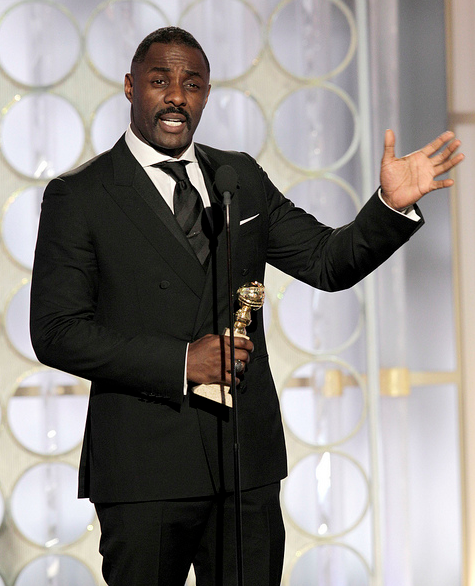
The newest James Bond movie, Skyfall, hasn’t even hit the big screens yet, but predictions for who will be the next James Bond are already making waves, with one name standing out for the controversy it sparked: Idris Elba.
For those who just raised an eyebrow wondering who this guy is, Elba is the talented, charismatic British actor who played, among other roles, Stringer Bell on the The Wire, and Luther in the eponymous British detective show.
Elba is also black. Why the extra description, you ask? Because that detail seems to be of major importance to many James Bond purists.
Created by author Ian Fleming in 1953 as a half-Scottish, half-Swiss character born and educated in England, tradition, they say, dictates that James Bond has to be a white male with a British accent in his forties with some underlying misogynistic penchants.
But here’s a fact for you guys: this is not the 15th century Europe we’re talking about. The United Kingdom is not all white and most people know it by now. Hearing a perfect English accent coming out of the mouth of someone of Indian or Jamaican descent does not seem strange for many people of our generation and we know that an Englishman does not necessarily have to look like Maxwell Sheffield.
Tradition, as critic and film studies professor at Concordia University Matthew Hays says, is not a good enough argument.
“There are all sorts of traditions we have that are just bad ideas. Slavery and child labour were traditions and we decided that they were not good ideas. Limiting what people can do on the base of the color of their skin is another one.”
I am no James Bond movies scholar, but it seems to me that what makes the series so popular throughout generations is that the British secret agent, as well as the adventures he lives through, evolve.
“James Bond is a quite old-school figure,” Hays continued. “He is forever catching up with time and with whatever current trends are happening, trying to look cool. That’s what the British franchise is trying to do.”
Bond’s success, therefore, resides in his ability to detach himself from the character created in 1953 in order to better represent the image our society depicts as the coolest secret agent in history.
Sean Connery was too good of a Bond for the public to hold it against him that he was Scottish, instead of British like most of his successors. Similarly, Daniel Craig had to be much more of a badass than his predecessors in order to answer the rebellious and anti-authority expectations we have of modern heroes (they tortured him by smashing his balls for Christ’s sake).
Much like the character of Batman, it seems that James Bond tends to improve with time and it is we, the audience, that shapes him to become the attractive character he is.
But here it is; it seems that many James Bond fans don’t think being black fits the image. A phenomenon that Hays compared to society’s readiness for a black U.S. president. Something that eventually gets overturned with the help of popular culture.
Elba himself said, and rightly so, that he did not want to be known as “the black James Bond,” on National Public Radio. By that he meant that he didn’t want to be categorized in his performance for just the novelty of being black, “just like Daniel Craig wasn’t ‘the blue-eyed James Bond’,” the Prometheus actor said.
At the risk of disagreeing with an actor I greatly admire, perhaps it is, in fact, time to shake things up a bit and not wait another 10 years to make sure the audience is ready for a non-white James Bond. Idris Elba is a perfect Bond precisely because he represents what Great Britain is today; an eclectic country in a multicultural, yet smaller world.
Perhaps whoever will be producing future James Bond movies will want to broaden the series’ audience to more than the typical, old-fashioned, more-or-less repressed macho guy, who wishes he could have the face of an 18th century British colonist that can break women’s hearts with a wink.
And maybe, just maybe, it is time for us to realize that what makes the emblematic secret agent so irresistibly charismatic is neither skin color, origins, age or even sex.
Yes, you read right. It is about time we free ourselves from the sexist, Charlie’s Angels style bouncy butt and generous breasts stuffed in a spandex jumpsuit, female secret agent cliché and realize that James Bond, or whatever name we come up with for the occasion, could very well be an elegant and charming woman.
James Bond mutates according to us.
So, do we have the licence not to be racist and misogynistic when shaping our future James Bonds? I think we do.



